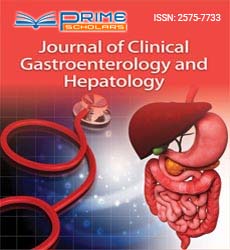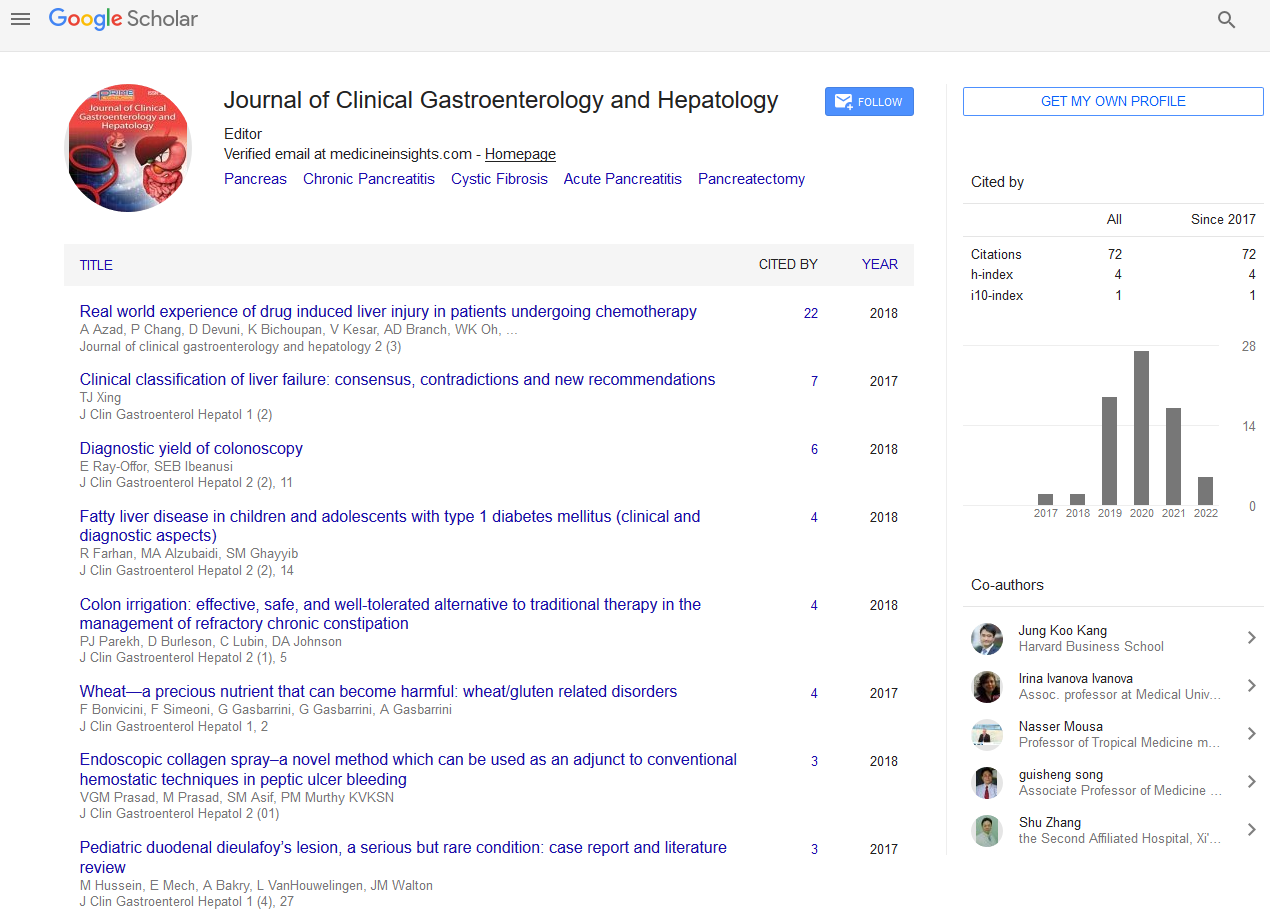Commentary - (2022) Volume 6, Issue 2
A Brief Note on Gastric Problems Causes, Symptoms & Treatment
James Faulkner*
Department for Hepatology and Gastroenterology, University of Berlin, Germany
*Correspondence:
James Faulkner, Department for Hepatology and Gastroenterology, University of Berlin,
Germany,
Email:
Received: 26-Jan-2022, Manuscript No. IPJCGH-22-13009;
Editor assigned: 28-Jan-2022, Pre QC No. IPJCGH-22-13009 (PQ);
Reviewed: 11-Feb-2022, QC No. IPJCGH-22-13009;
Revised: 16-Feb-2022, Manuscript No. IPJCGH-22-13009 (R);
Published:
23-Feb-2022, DOI: 10.36648/2575-7733.6.2.6
Description
Among the organs in the mid-region are the stomach, liver,
small digestive tract, digestive organ, gallbladder, spleen, kidneys,
stomach, and pancreas. Stomach pain, often known as
stomach throb, is a common symptom of a gastric problem.
One of the most well-known concerns that occur beyond the
age of 40 is gas or stomach issues. There are a variety of factors
that might contribute to gastrointestinal difficulties, such
as acid reflux or an empty stomach. An exacerbation, disruption,
or breakdown of the stomach’s coating is known as gastric
problem or gastritis. It starts off as a high-intensity experience
and gradually progresses into a chronic condition.
Gastritis, often known as stomach gas, is a disorder in which
the stomach film layer becomes irritated, resulting in the release
of acids. When these acids come into contact with the
stomach partitions, it causes pain and discomfort. This syndrome
eventually leads to a problem known as gastric reflux.
The importance of gas in your stomach’s associated structure
for the normal absorption process cannot be overstated. Burping
or passing gas (flatus) are both common ways of getting rid
of excess gas. Gas pain might occur if gas is trapped or does
not move well through your stomach-related system. Eating
food sources that are prone to delivering gas may induce an
increase in gas or gas discomfort. Frequently, a few simple dietary
changes can help to alleviate bothersome gas. Certain
stomach-related structural disorders, such as irritable bowel
syndrome or celiac disease, can cause additional symptoms
and side effects, as well as increase gas or gas pain.
There are a variety of reasons for the hefty gastric issue, ranging
from being in an empty stomach for an extended period
of time to indiscriminately admitting disagreeable or scorching
food to consuming alcohol. Numerous complexities associated
with stomach intricacy might also be explained by stress,
anxiety, and unease. Another simple but important explanation is the proclivity for not chewing the meal properly. Gastric
problems can also be caused by internal contaminations. Helicobacter
pylori, a tiny bacteria that dwells in the mucous layer
of the stomach, is one of the causes. This condition can cause
ulcers and, in certain cases, stomach malignant development
and cancer if not treated on time. Bile reflux is the ejection of
bile from the bile duct into the stomach.
Acidity, indigestion, stomach bloating, heartburn, viral or bacterial
contaminations, food poisoning, kidney stones, constipation,
tumours, pancreatitis, and ulcers are some of the causes
of gastric problems. Gastroenteritis, lactose intolerance, Celiac
disease, Crohn’s disease, diabetes, peptic ulcer, and irritable
bowel syndrome.
Gastric constriction can be achieved by drinking enough of water,
remembering to include lemon juice in your diet, drinking
warm water, and incorporating baking soda, lemon, a glass of
cold milk, buttermilk, and mint juice into your diet. Tea can also
help with stomach management. A warm cup of fennel, chamomile,
or ginger tea will help with stomach bloating, which is
the root cause of gastritis. Make an effort to eat high-quality
suppers. Include whole grain foods, natural goods, and veggies
in your dietary plan. When the situation allows, getting ready
suppers at home can help one have more control over healthy
diets. As much as possible stay away from unhealthy foods.
It’s also a good idea to plan on eating more modest dinners. If
you’re used to eating larger dinners, start dividing them up so
you can have smaller dinners throughout the day. This can help
to alleviate stomach pain and gastrointestinal troubles.
Acknowledgement
None.
Conflict of Interest
Authors declare no conflict of interest.
Citation: Faulkner J (2022) A Brief Note on Gastric Problems Causes, Symptoms & Treatment. J Clin Gastroenterol Hepatol. 6:6.
Copyright: © Faulkner J. This is an open-access article distributed under the terms of the Creative Commons Attribution License, which permits unrestricted use, distribution, and reproduction in any medium, provided the original author and source are credited.

